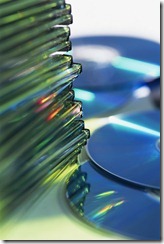How to Burn Disks with Windows Server 2008 R2
I believe that Windows Server 2008 R2 is the best Server operating system on the planet by a pretty wide margin over every other competitor in the marketplace. Its just a rock solid amazing server platform!
Now that you know exactly where I stand on this topic let me also say that there are plenty of things I would love to see Microsoft do to take the next step so to speak in the world of servers.
One of these next steps is actually pretty simple to do. Let me burn CD’s or DVD’s with Windows Server. If you have tried this you know that by default your ability to burn optical disks from within Windows Server is limited. I have yet to come across any published reason why this is the case. I will make the assumption that it has something to do with the state of the user accounts and the accessibility that Windows Server provides to the data on said server. I can clearly see the benefits for example of using group policy to control access to removable media. I totally understand why we would want to limit non administrative users access to privileges like logging on locally to our servers. The key to both of these scenarios (and hundreds of others) is that they can be changed through group policy. When it comes to burning optical disks that is NOT the case.
So what exactly do we do about it?
Here is what I do.
1. Logon with the administrators account. ( I know I have spent years telling you not to use the administrator account unless it was absolutely necessary. Here is one of those times.)
2. Install your favorite burning utility.
3. Run the utility as Administrator.
If you will do those three things you will be able to burn CD/DVD’s.
One question. Why are you burning Optical disks from your server?
I am guessing that there is no really good answer to this question, and also the reason the Windows Server Team took no time to assure it would be an available option.
Let’s make some assumptions.
1. You are burning data that should really be stored somewhere else but you have for some reason chosen to keep it on your Windows Server machine (I get it Windows Server is often used as a file server. See #2)
2. You have not assigned the appropriate permissions for data movement to a platform which would allow disk burning (Like maybe Windows 7.) If this is the case its time to get with the program and set the permissions appropriately.
3. You are a hacker wondering why Microsoft has not made your job easier? (Seriously?)
4. Laziness. (See #1, #2, #3)
Like many things in the world of Windows Server we can find a way to work around the way the product was built. When you find yourself doing stuff like this it makes sense to ask yourself why?
Can it be done? Yes!
Should you be doing it? NO!
Happy Burning!
